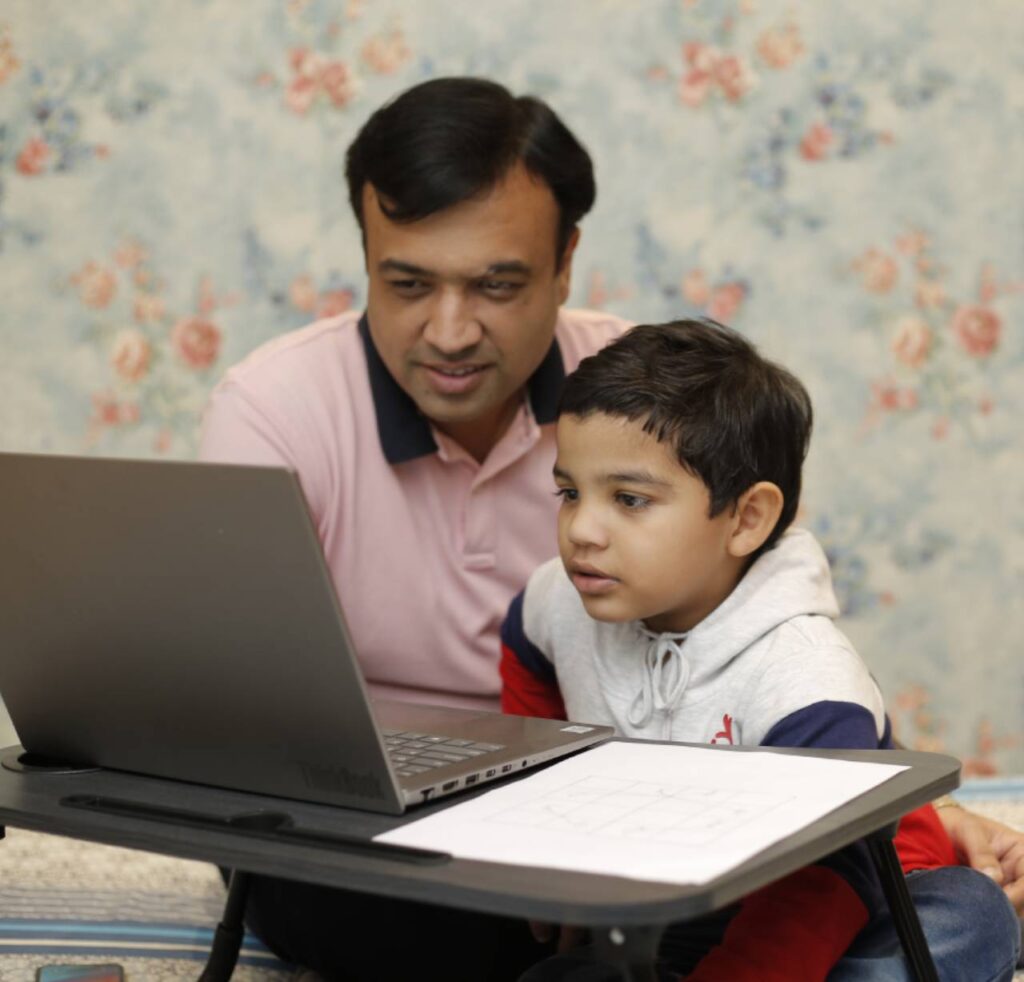“Every child has the right to be well-born, well-nurtured and well-taught” – Hellen Keller
In my regular interaction with young children, I notice a peril having gripped the society nowadays: they are glued to their smartphones, gaming consoles, computers and other screens for hours. In the nuclear families prevalent today, the working parents are mostly very caught up with their respective careers and find it easier to get on with their duties and even feed the little ones by having them engaged on the screens! However, by indulging in this, they ignore the fact that excessive exposure to screens has a negative impact on the kids, both physically and mentally. In fact, the American Academy of Pediatrics recommends that preschoolers should not spend more than one hour on screens. Sadly, research indicates that kids the world-over are accumulating over four hours of screen-time daily on an average.
Another study by Jama Pediatrics (the reputed journal from the American Medical Association) reveals the alarming information that by the time they attain eight years, today’s children have been found to consume the highest amount of harmful screen time.
As a counsellor and educator, this worries me about the future and well-being of the younger generation. After all, they are the flag bearers of a brighter tomorrow.
Adverse effects
Do you know that children, especially under the tender age of three, undergo rapid brain development? In fact, the manner in which they are nurtured till the age of six is most critical to shaping their future. The potential hazards of over-exposure to such wearable technology are categorized into developmental, psychosocial and physical.
Exposure to screens is one of the leading causes of Attention Deficit Hyperactivity Disorder (ADHD), a brain disorder that affects how they pay attention, behave and hone their motor skills. In fact, it is the most commonly diagnosed mental disorder in young ones.
By continuously being engaged to moving objects on the screens, the young minds are exposed to an overdose of three-way stimulation (visual, auditory and kinesthesis). This often results in delayed speech for the child, not to mention underdeveloped social skills. Social interaction not only includes meaningful conversation but also recognizing and understanding non-verbal cues. The limited face-to face interaction has a negative bearing on their adult relationships later in life.
Excessive screen time has been proven to be habit-forming and also been linked to aggression as well as other behavioural issues. With the food not getting digested property, it is a precursor for serious health hazards as well.
Wean them off the digital landscape
I love children and my life revolves around spending time and communicating with them. In the realm of my profession, I always advocate and encourage young parents to dedicate more time to communicate with their little ones. Effective communication is the key to the development of any child, the foundation for happy relationships is essential for learning, playing and social interaction. It helps to establish and maintain positive bonding with your child right from the formative years.
It is very important to wean the kids off the devices and direct them into the “real” world. After all, their manual dexterity is inversely proportional to their exposure to screens. Therefore at Wings, we promote the development of the communication as well as the motor skills of the young minds by talking to them and engaging them in meaningful physical activities. As care-givers, we always have the best strategies in place to help children learn, develop and be happy.
Counselling parents and caregivers for appropriate use of screen time has become the order of the day. Some of the salient points I advise parents include:
- Exposure to screens for children under 2 years is not recommended.
- For children between 2-6 years, it is important to limit viewing of digital media to less than one hour per day.
- Be present and whenever possible, co-view with your children. Keep the channel of questions, answers and generic communication open.
- Content is important – prioritize educational, age-appropriate and interactive viewing.
- Employ parenting strategies that involve self-regulation, calming and limit-setting. It must be borne in mind that excessive screen time implies lost opportunities for teaching and other forms of learning.
- Maintain daily “screen-free” times where the kid is engaged in any other healthy alternatives such as reading, outdoor sports and creative activities. Simply spending quality time with you is good enough!
- It is very important to avoid screens for at least an hour before bedtime to ensure a restful sleep for your little one.
- Make family time fun such as snuggling up to read a book together at night.
Believe me, through my long years of experience, I know these changes will not happen overnight, but they are bound to happen eventually. After all, as parents you are the main influences in your child’s life.
Motivate your children and you’ll soon see a host of health and wellness benefits that will augur well for the future of the apple of your eye!


